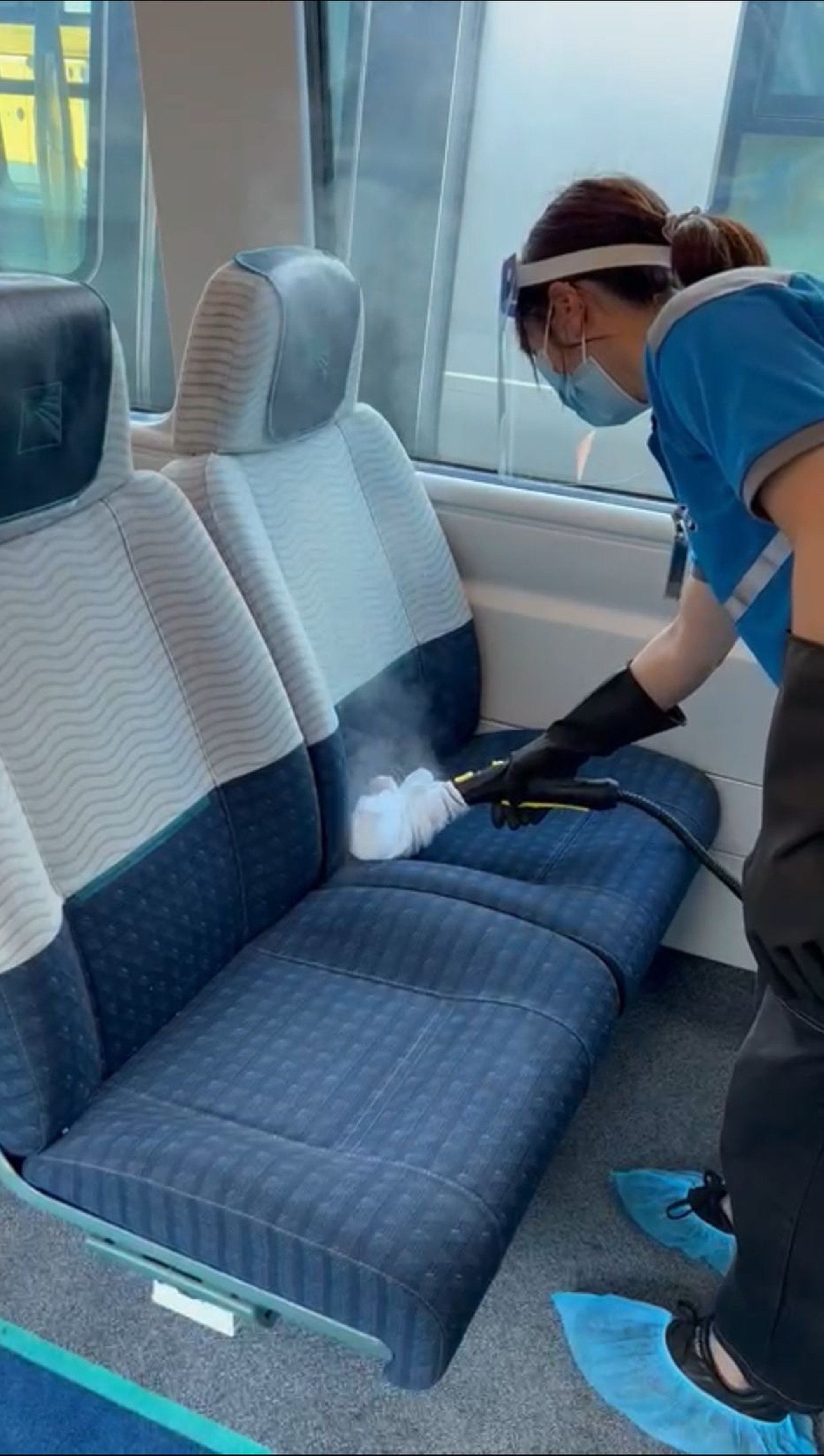
Hong Kong lawmakers call for more precautions to avoid spread of bedbugs as MTR Corp deep cleans train after photo of what expert says was pest on seat
- MTR Corp says it carried out deep cleaning on Airport Express train after passenger’s report of what was claimed to be bedbug, but no similar insects found
- Lawmakers urge government to issue cleaning guidelines to schools, hospitals, and public transport operators, as well as disinfect flights and ships from high-risk areas
Authorities should step up efforts to prevent any possible spread of bedbugs in Hong Kong, lawmakers have warned after an online photo that showed what an expert said was a bedbug on an Airport Express train went viral.
Hong Kong’s rail giant, the MTR Corporation, on Friday said it had carried out deep cleaning of the train the night before after a report from a passenger at around 9pm.
But the company said no insects similar to the one seen in the photo were found.
“The company immediately took the train back to the depot for thorough inspection and cleaning,” a spokesman said. “No such discovery was made during the cleaning process.”
The image of the insect began circulating on social media on Thursday night, showing a brown, oval-shaped creature on the back of a seat inside an Airport Express train. Internet users quickly commented on the posts, speculating that it appeared to be a bedbug.
Henry Cheng Kwok-hang, a consultant with Ivy Pest Control Corporation, said the insect in the photo was a bedbug of the Cimex lectularius species.
“High-temperature steaming [by the MTR Corp] should suffice, but it’s hard to prevent more bedbugs from appearing on trains with so many travellers coming to the city … and no machine is capable yet of detecting bedbugs, unlike termites,” he said.
“Bedbugs can hide in suitcases, carry-on luggage, the clothes people are wearing or even belts.”
The Post was unable to immediately verify the authenticity of the image.

Cheng said it was also possible for travellers to spread bedbugs in the community.
The Food and Environmental Hygiene department said authorities would distribute information on bedbugs prevention and control to different sectors and organisations, and provide technical support if necessary.
The MTR Corp spokesman said that, starting from this week, it would carry out “high-temperature deep cleaning and pest control work” on all Airport Express, high-speed rail and Disneyland line trains, as well as the first-class compartments of carriages servicing the East Rail line.
Lawmaker Kitson Yang Wing-kit appealed to the government to issue cleaning and disinfection guidelines to schools, hospitals, cinemas and public transport operators, as well as to ask them to carry out regular high-temperature deep cleaning.
“If there is a major outbreak, the government should send pest control teams to help underprivileged households, including elderly, low-income families and people with disabilities,” he said.
Fellow legislator Edward Leung Hei said the government should disinfect flights and ships coming from areas at high risk of bedbug infestation, including luggage on board.
He called for more interdepartmental cooperation to improve public hygiene and warned that the problem could worsen over Christmas because of the surge in the number of travellers.
The pests infested public transport in France earlier this year, including the metro system in Paris and the country’s high-speed train, later spreading to Britain.
South Korea is the latest to scramble to stop the pests from spreading in places such as train stations, cinemas and university dormitories.
Earlier, Hongkongers heading to South Korea told the Post they had armed themselves with disinfectant, lights and insecticide to fight bedbugs, pressing on with their trips despite an outbreak of the pests in the country.
South Korea said there had been at least 33 reports of bedbug infestations across the country between the middle of last month and Sunday. The figures were a sharp jump from only nine cases recorded by the country’s disease control agency in the past 10 years.
There have been 17 suspected bedbug reports filed from seven of Seoul’s 25 districts.
The MTR Corp said it had started assessing risks and formulating plans as soon as outbreaks began in other countries, and had enhanced inspection and cleaning every night to ensure its trains were clean and sanitary before they were put into service.
“The company will continue to pay close attention and strengthen inspections of stations and train carriages,” the spokesman said. “One of the areas of focus for cleaning is the non-metallic seats. If any abnormalities are found on the train, [it] will be returned to the depot for cleaning.”
Timothy Chui Ting-pong, executive director of the Hong Kong Tourism Association, said the industry would strengthen information exchange and prepare for any possible outbreaks, but he had yet to hear of any bedbug infestation cases in local hotels.
“In the past, bedbug issues occurred in hotels in Hong Kong sporadically, but only in one to two rooms or a tiny area,” he told a radio show. “The occupancy rate of hotels in Hong Kong is high overall. Even though we are understaffed, we still can do housekeeping every day or every other day, so we don’t need to worry too much.”
Wong Hung, an associate social work professor at Chinese University, said bedbug infestations were found regularly in low-income households living in cramped conditions in Hong Kong’s subdivided flats and such occurrences were unrelated to overseas outbreaks.
“We have no statistics suggesting an increase in bedbugs from residents of subdivided flats,” he said on the same programme. “The weather has been a little cooler lately, reducing the possibility of bedbug infestations.”

